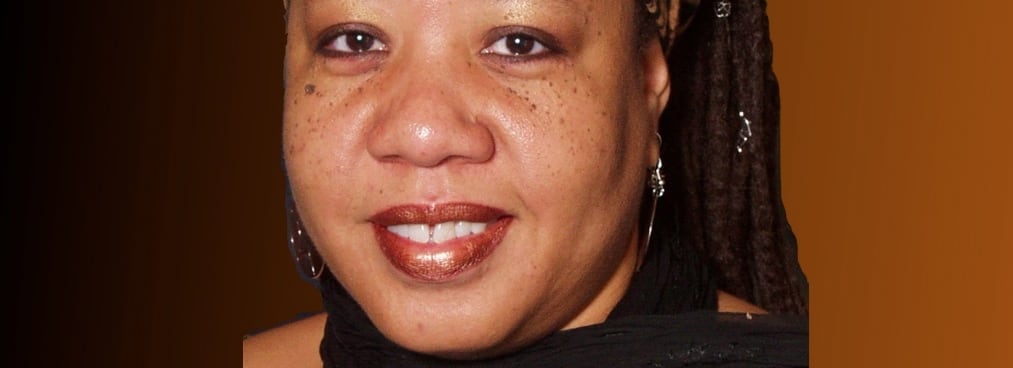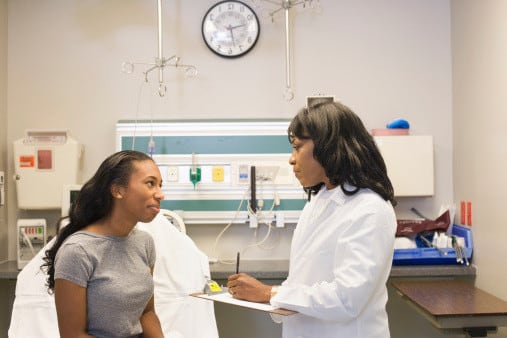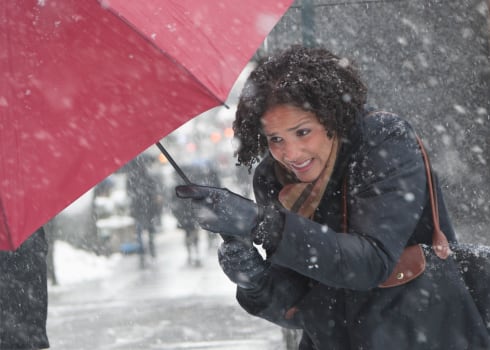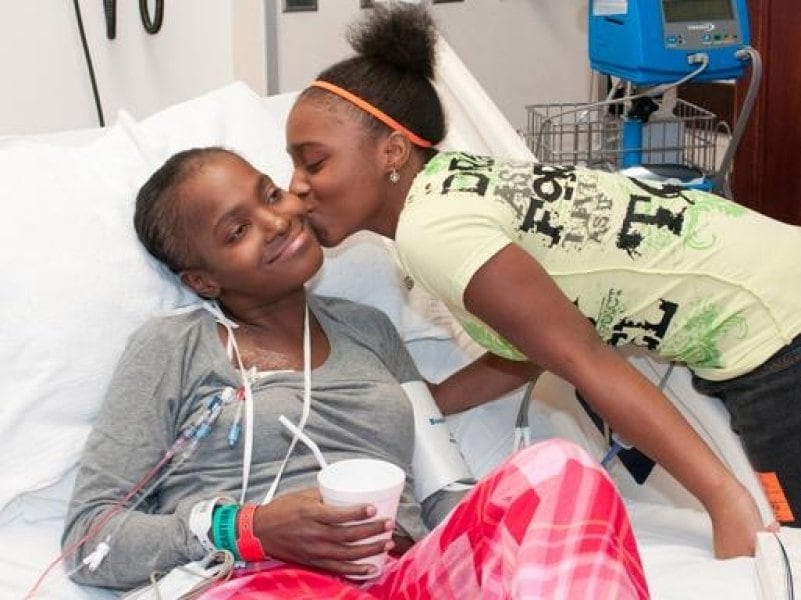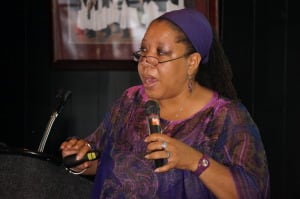 Dazon Dixon Diallo, M.P.H., is the president and CEO of SisterLove Inc. Since 1989, the Atlanta-based organization has fought against the threat of HIV/AIDS among women through education and advocacy for better prevention, treatment and care. To commemorate this year’s World AIDS Day (Dec. 1), Diallo shares her advice about why we have finally seen a drop in HIV infections among black women and what we can do to stop the spread of the virus in our community.
Dazon Dixon Diallo, M.P.H., is the president and CEO of SisterLove Inc. Since 1989, the Atlanta-based organization has fought against the threat of HIV/AIDS among women through education and advocacy for better prevention, treatment and care. To commemorate this year’s World AIDS Day (Dec. 1), Diallo shares her advice about why we have finally seen a drop in HIV infections among black women and what we can do to stop the spread of the virus in our community.
Q: For the first time since HIV/AIDS was discovered, we have seen a 21 percent drop [according to the Centers for Disease Control and Prevention] in cases among black women. How did it happen?
A: Increased awareness and testing are behind the reduction in new infections. But, as we celebrate the good news, we have to remember that our rates are still higher than those among other groups of women. That tells us we have to continue and expand the practices that helped bring down the rates.
Q: What has had the most impact on infection rates?
A: First and most important, more women are getting tested. We know from our work that once a person knows their HIV/AIDS status, they begin to see their risk differently. It often changes behavior. Once a woman knows she is healthy, she may work that much harder to protect herself. I also think a much broader group of women are getting the message that they really are at risk for this disease and taking that risk seriously.
There’s also been a modest increase in integrating HIV/AIDS screening into women’s health care services. The next step is to make that screening part of primary care for women who are not necessarily seeking care related to reproduction.
Q: What has changed the way black women see their risk of contracting HIV/AIDS?
A: One of the most powerful forces has been women who were willing to tell their story. Women now see teachers, nurses, pastors, professors — women who were not necessarily thought of as vulnerable to the virus — who are HIV-positive.
Black women have also brought this conversation into their churches. They are following the examples set by pioneering activists like Ruth Royster Fordham, a community educator at Access AIDS Care in Norfolk, Va., who was just named one of POZ Magazine’s “100 Unsung Heroes” in the battle against HIV/AIDS, or Bishop Yvette Flunder, who has created a network of housing, education and direct services organizations to address the needs of people with HIV/AIDS in San Francisco, and, of course, Pernessa Seele, founder and CEO of the Balm in Gilead Inc., the organization that redefined the way HIV/AIDS was dealt with in black churches.
Q: What’s your advice for women who want to be safe but sexy?
A: The SisterLove Healthy Love intervention was created to give women the tools they need to make safe sex a healthy, normal part of their love lives. We encourage women to:
? Put yourself first. Never be afraid or apologetic about asking your partner to use a condom.
? Celebrate your sexuality, and normalize how you think and talk about sex. You can’t be comfortable discussing your needs and protection unless you are open and honest about desire and having a healthy sex life.
? Never make your safety someone else’s responsibility. Get the information and the tools you need; don’t wait for someone else to supply a condom or to get tested.
? Know your partner’s HIV status — and I mean you need to see it on paper.
? Be creative about safe sex. Putting on a condom, for example, can be part of foreplay.
? Get real. Married women should also realize that being married may be their most significant HIV/AIDS risk factor, because they are unlikely to think about safe sex — they should. One of the most important tools in a marriage is building a relationship in which you and your partner can talk openly about fidelity and protecting each other. It’s a tough conversation, but it’s one you really must have.
Q: Are there any new prevention strategies?
A: Yes, there’s Pre-exposure Prophylaxis (PrEP). If an HIV-negative woman thinks she is living with a high, ongoing risk of contracting HIV, she can take the drug Truvada each day. It has been shown to significantly reduce [by as much as 75 percent] her chances of becoming infected with the HIV virus. PrEP may also prevent infection in pregnant women or women who become pregnant and have HIV-positive partners.
Post-exposure prophylaxis (PEP) is also available. It’s not 100 percent effective either, but taking a specific combination of HIV medications within 72 hours of an expected exposure to HIV — a broken condom for example or other isolated accident — it can greatly reduce your chances of becoming infected. The PEP medication protocol works like the morning after pill that prevents pregnancy.
But taking drugs to prevent HIV/AIDS is not a perfect solution and PrEP works best when used with condoms.
Q: Do you have a stay-safe message for black women?
A: Yes, for everyone who gets tested regularly, bravo! Next time, bring someone with you. And don’t just assume you are being screened for HIV — many women do — but it’s not a routine medical test, yet.
We also must push for better health care, better coverage for HIV/AIDS treatment and take full advantage of the benefits available to us to take the best care of ourselves.

